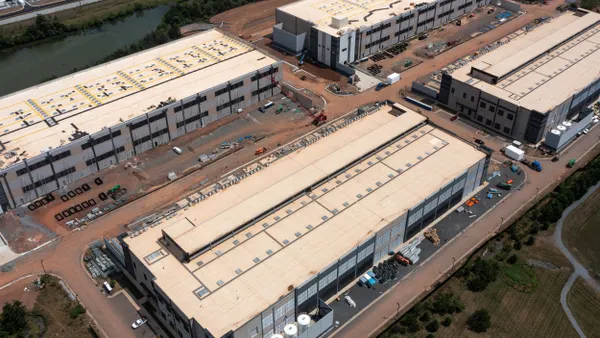The U.S. coworking sector added nearly 4 million square feet in the first quarter of 2025, with national coworking inventory increasing 2% quarter over quarter to reach 7,840 spaces, according to a report released Monday by CoworkingCafe, a platform that provides flexible workspace technology to businesses and remote workers. The 145 coworking spaces introduced in Q1 were in both maturing urban hubs and emerging second-tier markets, it says.
Despite efforts by employers to bring workers to the office more frequently, employees are seeking flexibility in both schedule and location, which is driving demand for flexible office options, according to Cushman & Wakefield’s 2025 flexible office outlook.
Overall, coworking prices saw another quarter of mixed movement. The median monthly subscription price for an open workspace held steady from Q4 2024 at $149, but some markets are seeing sharp price spikes and others are seeing declines, per the CoworkingCafe report. “In Manhattan, for example, open workspace rates jumped sharply, climbing from $240 to $339. On the flip side, Chicago saw its average fall to $125, down from $143 in Q4,” it states.
Dedicated desks followed a similar trend, said the CoworkingCafe report. While the national median average monthly subscription for a dedicated spot stayed at $300, large markets including Boston, Houston, Denver and Nashville, Tennessee, saw prices soften just slightly or remain steady, CoworkingCafe said.
Chicago stood out among large markets with a 16% quarter-over-quarter increase in its coworking space, adding 1.1 million square feet, to bring its total to just over 8 million square feet, the report states.
Average coworking size also continues to tick up, rising 1% from the end of 2024, per the report. “That modest increase keeps the trend of stabilization going as operators balance space efficiency with the demand for larger, more versatile layouts,” the report states.
Some markets, like Chicago and Florida’s Tampa-St. Petersburg-Clearwater market, saw large average space increases; others, like San Francisco and Brooklyn, New York, saw declines.
“Although the national shift was modest, the range of changes across cities tells a more complex story: Some markets are scaling up aggressively, while others continue to right-size based on local demand and economics,” the report states.
The leading coworking operators — Regus, HQ, Industrious, Spaces and WeWork — continue to dominate the landscape, expanding their nationwide footprint 6% in the quarter, to a combined 1,822 total locations at the end of Q1. Altogether, these five providers now account for one-quarter of the coworking spaces tracked nationwide, per the report.
CBRE acquired the remaining 60% of Industrious in January for $400 million, integrating the company into a new unit, Building Operations & Experience, that combined the flex office provider with CBRE’s existing enterprise facilities management, local facilities management and property management segments, the firm said.












